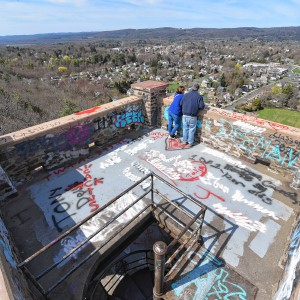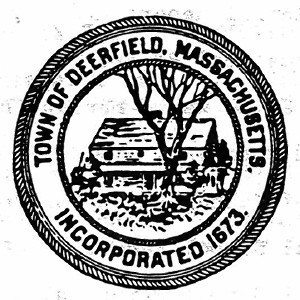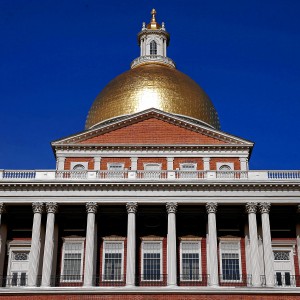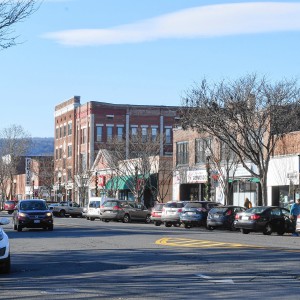80 years later, Quabbin Reservoir a wildlife haven
| Published: 06-15-2018 8:39 PM |
NEW SALEM — In 1938, four Massachusetts towns bustled with farmers and factory workers along the Swift River. However, in April of that year, Dana, Enfield, Greenwich and Prescott all would be disincorporated and drowned in the creation of the Quabbin Reservoir.
Today, the area is just as lively — although not with the few thousand people that once lived there, but with wildlife.
“It’s been a real success story,” said Clif Read, supervisor of interpretive services at the Quabbin branch of the state’s Department of Conservation and Recreation.
Trout, eagles, otters and mink — even the less-desired invasive Asian long-horned beetle — have increasingly thrived at the 18-mile-long reservoir since its creation 80 years ago.
“Even the common loon, which is actually not so common in Massachusetts, lives here,” Read said. “Our goal is to have a multi-species, multi-age forest to attract a large range of species.”
The Quabbin Reservoir was created to supply a growing Boston with water, as the Wachusett Reservoir to the east was insufficient. Now, the Quabbin is the water source for 51 municipalities across the state. It accounts for 65 percent of the state’s water supply, Read said.
Its location was chosen mainly because of the high-elevation valley of the Swift River, where the force of gravity allows water to travel “down hill,” all the way to Boston through underground aqueducts.
Another factor in choosing the location was the state-owned forest land in the region.
Article continues after...
Yesterday's Most Read Articles
The forests hugging the reservoir have led to its success in protecting and promoting nature, rather than just as a watering hole, Read said.
“The forests have been sort of a filter for the reservoir,” Read said. At the same time, he said, the surrounding woods make the Quabbin Reservoir an animal heaven. The area’s population also plays a role in making the Quabbin a significant ecological system in Massachusetts. If the reservoir were surrounded by larger cities like Worcester or Springfield, Read said, rather than towns like New Salem and Belchertown, it would not be this way.
“There’s this accidental wilderness we’ve created,” Read said. “The land has changed from largely farmland and agriculture in the early 1900s, to this forest-New England landscape.”
A particular success story to the change, described by Read as the “big one,” is the bald eagle population at the Quabbin Reservoir.
It was only in 1989 that the first nesting bald eagles appeared at the reservoir — and only in 2007 the bald eagle was taken off the Federal Endangered Species list — but now, sightings are common at the Quabbin.
There are now an average of 16 nesting bald eagles a year at the Quabbin Reservoir, and in 2018 there are 12 nests.
Considering that 68 territorial — or nesting — bald eagles were identified across all of Massachusetts in 2017, the Quabbin bald eagle population is a major success, Read said.
Obviously, fish in particular have thrived at the reservoir, Read said, which in turn helps the bald eagles — and even a few golden eagles — live there.
“Larger fish, largemouth bass, trout, it’s changed drastically” from the fish in the Swift River before the reservoir’s creation, Read said.
Moose footprints are easily found off the many trails surrounding the forest. In a more scarce encounter, a mountain lion was seen in 2011, Read said.
And along with a source of water for millions, and home for countless species, the Quabbin has become increasingly known as a recreational area.
“The creation of the watershed has had tremendous positive effects on the area,” said Troy Wall of the Massachusetts Executive Office of Energy and Environmental Affairs. “The creation of a natural resource provides invaluable habitat and ecosystems, and a high level of access for the public to benefit from with the numerous recreational opportunities available to them.”
Reach David McLellan at: dmclellan@recorder.com or 413-772-0261, ext. 268.
]]>

 $50K allocated for Poet’s Seat Tower sandblasting as officials mull vandalism prevention
$50K allocated for Poet’s Seat Tower sandblasting as officials mull vandalism prevention Deerfield voters to decide 8 capital projects at Town Meeting
Deerfield voters to decide 8 capital projects at Town Meeting Shelter money fading, but ‘not at the end of the line’
Shelter money fading, but ‘not at the end of the line’ Greenfield City Council approves borrowing $1.18M for Main Street redesign, sewer repairs
Greenfield City Council approves borrowing $1.18M for Main Street redesign, sewer repairs
